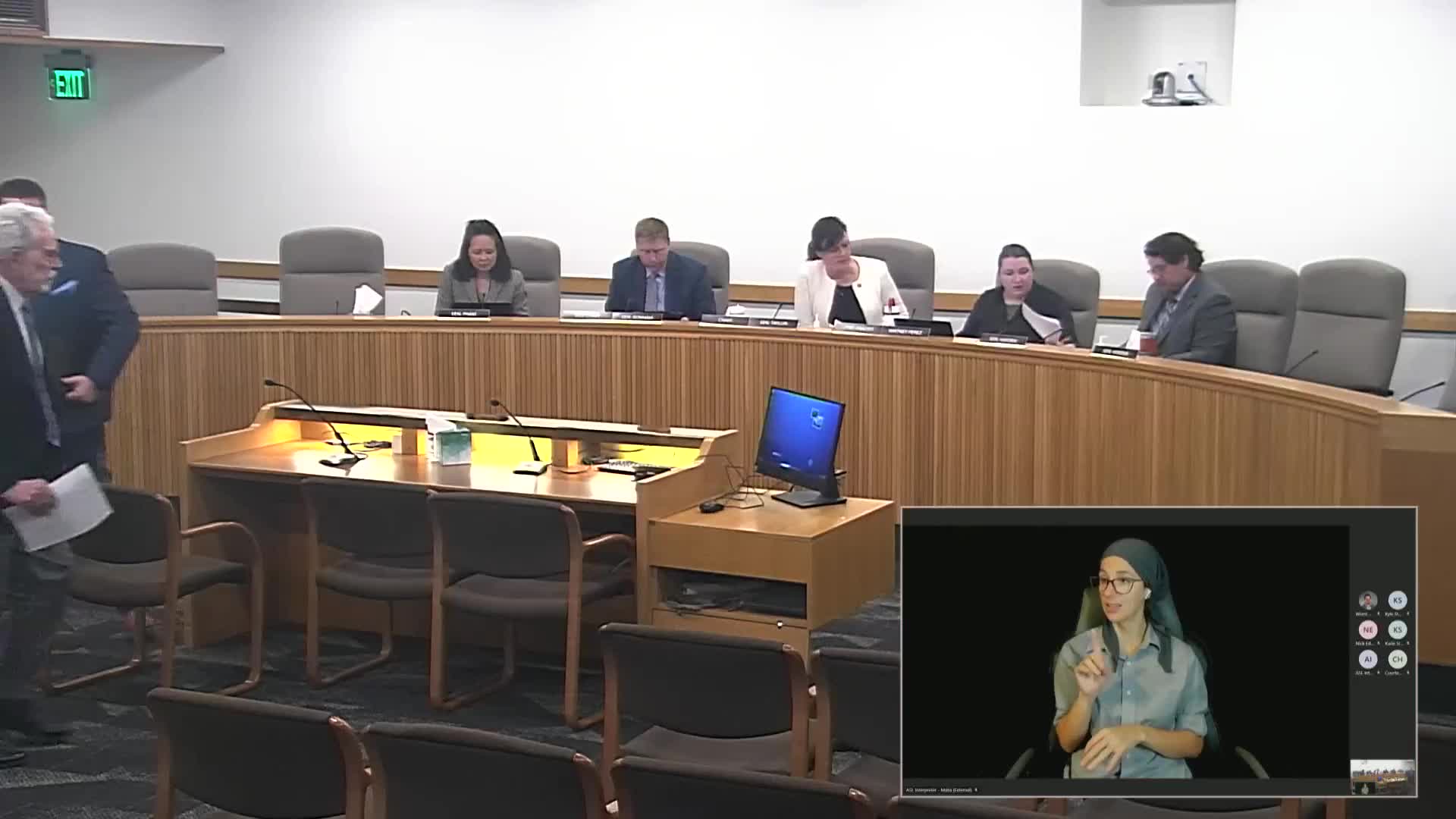Bill would direct DCBS to propose building-inspector apprenticeship; BOLI flags regulatory and employer issues
Get AI-powered insights, summaries, and transcripts
Subscribe
Summary
Senate Bill 1086 (dash 1) would require DCBS to propose a registered apprenticeship program for building inspectors and direct the State Apprenticeship and Training Council to establish the program; supporters praised the idea, but BOLI asked for technical fixes to preserve the council’s regulatory role and to ensure employer sponsorship.
Senate Bill 1086, as amended in the dash 1, directs the director of the Department of Consumer and Business Services (DCBS) to develop a proposal to guide the State Apprenticeship and Training Council in establishing a registered apprenticeship program for building inspectors. The dash 1 amendment also directs the apprenticeship council to establish the program in accordance with DCBS’s proposal.
Senator **** Anderson (sponsor) said the amendment places DCBS in the lead to tailor a program for Oregon that leverages the agency’s regulatory expertise and state labor partnership with the Bureau of Labor and Industries (BOLI). Supporters told the committee the program would address a severe shortage of code professionals, help rural and coastal communities retain construction capacity, and create an earn-while-you-learn pathway into a skilled trade.
Dan Carlson (building official, Wilsonville) and representatives of Chemeketa Community College and Portland Community College described existing training capacity and a concept for a program in which jurisdictions hire apprentices and community colleges provide coursework during the apprenticeship. Carlson said the concept could flip the current training model by hiring apprentices first and training them while employed; Chemeketa and PCC program costs to students were described in testimony (roughly $20,000 total course cost), and witnesses said apprentices would be paid while training.
Josh Nasby, a representative of BOLI, said BOLI was neutral on the bill’s goal—registered apprenticeships are an accepted tool—but flagged two drafting and implementation issues: (1) the dash 1 amendment as written could circumvent the existing regulatory process by directing the council to establish programs without preserving the council’s normal approval role; (2) registered apprenticeship programs require willing employers because apprentices are paid and wages escalate during the program; the draft assigns DCBS to identify employers later in the process, which may be risky if no employers step forward. BOLI offered to work on amendment language to preserve the council’s standard regulatory role and recommended engaging employers and apprenticeship sponsors.
Committee members asked about timeline, program costs, and whether employers were lined up; witnesses said jurisdictional hires and participation from local building departments and associations (Oregon Building Officials Association) would be expected, but the committee directed sponsors and agencies to refine language. No work session or vote occurred at this hearing; BOLI and sponsors committed to return with clarifying amendment language.
Ending: The committee closed the public hearing after receiving commitments to refine statutory language and to flesh out employer-sponsor arrangements; staff and BOLI offered to draft clarifying amendments for future work sessions.
